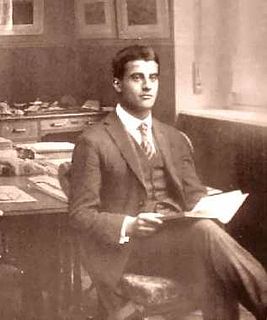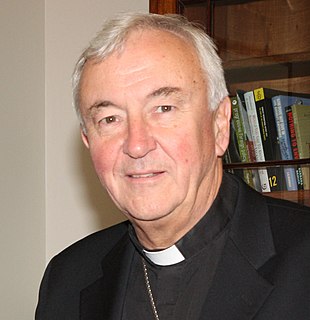A Quote by Martin Luther
The two chief things are faith and love. Faith receives the good; love gives the good. Faith offers us God as our own; love gives us to our neighbor as his own.
Related Quotes
Faith is the framework for living. It gives us the spirit and heart that affects everything we do. If gives us hope each day. Faith gives us purpose to right wrongs, to preserve our families, and to teach our children values. Faith gives us conscience to keep us honest, even when nobody is looking. And, faith can change lives; I know first hand, because faith changed mine.
Faith is indeed the energy of our whole universe directed to the highest form of being. Faith gives stability to our view of the universe. By faith we are convinced that our impressions of things without are not dreams or delusions, but, for us, true representations of our environment. By faith we are convinced that the signs of permanence, order, progress, which we observe in nature are true. By faith we are convinced that fellowship is possible with our fellow man and with God.
Here's the thing about faith: It gives us the strength to go on when we want to give in. It gives us the courage to get up when we want to lie down. It gives us the power to make a way out of no way when there ain't no way. Just as love can't make you strong until love has made you weak, well, faith can't lift you up until life has knocked you down. With faith or without it, we can't stop the waves. But with it, we don't need to. Because with it we can ride the surf.
Each of you knows that the foundation of our faith is charity. Without it, our religion would crumble. We will never be truly Catholic unless we conform our entire lives to the two commandments that are the essence of the Catholic faith: to love the Lord, our God, with all our strength, and to love our neighbor as ourselves.
It is an item of faith that we are children of God; there is plenty of experience in us against it. The faith that surmounts this evidence and is able to warm itself at the fire of God's love, instead of having to steal love and self-acceptance from other sources, is actually the root of holiness: It is a fatal mistake to think of holiness as a possession which we have distinct from our faith... Faith is the very highest form of our dependence on God.
Faith is not our saviour. It was not faith that was born at Bethlehem and died on Golgotha for us. It was not faith that loved us, and gave itself for us; that bore our sins in its own body on the tree; that died and rose again for our sins. Faith is one thing, the Saviour is another. Faith is one thing, and the cross is another. Let us not confound them, nor ascribe to a poor, imperfect act of man, that which belongs exclusively to the Son of the Living God.
God's unfailing love for us is an objective fact affirmed over and over in the Scriptures. It is true whether we believe it or not. Our doubts do not destroy God's love, nor does our faith create it. It originates in the very nature of God, who is love, and it flows to us through our union with His beloved Son.
But, today, the idea of faith returns to me. Faith defies logic and propels us beyond hope because it is not attached to our desires. Faith is the centerpiece of a connected life. It allows us to live by the grace of invisible strands. It is a belief in a wisdom superior to our own. Faith becomes a teacher in the absence of fact.
In Christ and by Christ, God effects complete self-disclosure , although He shows Himself not to reason but to faith and love. Faith is an organ of knowledge, and love an organ of experience. God came to us in the incarnation; in atonement He reconciled us to Himself, and by faith and love we enter and lay hold on Him.
What has the Cross left in each of us? You see, it gives us a treasure that no one else can give: the certainty of the faithful love which God has for us. A love so great that it enters into our sin and forgives it, enters into our suffering and gives us the strength to bear it. It is a love which enters into death to conquer it and save us.
Faith is the root, the necessary beginning. Hope is the stem, the energy that makes the plant grow. Love is the fruit, the flower, the visible product, the bottom line. The plant of our new life in Christ is one; the life of God comes into us by faith, through us by hope, and out of us by the works of love.









































